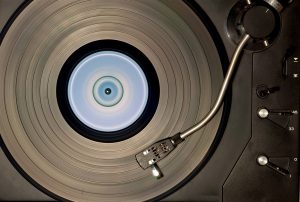Why Music Makes Us Feel Good
Music makes us feel good, there’s no doubt about that. In the same way that people enjoy gambling, drugs and gourmet food, it’s all about dopamine. When you hear a tune that you like, it moves you and your brain responds by releasing dopamine, the feel-good chemical. This is the chemical that is involved in both addiction and motivation. Even the anticipation of hearing your favourite sounds is enough to get the dopamine flowing.
This fairly recent discovery about the link between dopamine and music explains why music has been a huge part of our existence since the beginning of time. Dopamine is a molecule that induces feelings of reward and is highly adaptive. Its original biological purpose was to make animals and humans look for food before they became hungry.
Neuroscientists believe that the act of following a tune and anticipating what comes next, whether you’re right or wrong is what keeps us hooked, providing tiny cognitive nuances that give immense pleasure. The massive amount of pleasure we get from music explains why it has featured in every culture.
One study has even linked the pleasure experienced by listening to music with a physiological surge in emotional arousal that includes a change in heart rate, increased pulse and breathing rate. People can also experience feelings similar to chills or a shiver. Scientific studies have noted that when people experience these feelings, blood is actually flowing to the area of the brain that releases dopamine. This is why we hear music when we’re shopping. Retailers want us to feel good, comfortable and ideally releasing that dopamine. For more information about In store Music, visit https://moodmedia.co.uk/in-store-music-for-business/
To further establish these reactions were really happening, scientists took some music-lovers and injected them with a mildly radioactive liquid that binds to the dopamine receptors. With the use of a PET scanner they were able to see if the substance moved through the blood which would suggest that dopamine had already been released when the music was heard. If the dopamine receptors were free however, the radioactive substance would stick to them.
This experiment demonstrated for the very first time that the brain released big quantities of dopamine when they heard music that gave them that ‘chills’ feeling. When the participants listened to music that didn’t move them, the dopamine receptors didn’t react.
When the link between musical arousal and dopamine was established, the participants were put into an MRI machine for a brain scan while being played the moving music again. The result of these MRI scans was that scientists saw for the first time how the brain released dopamine both during the ‘chills’ phase but also before the music was heard in the anticipation stage and from two different areas of the brain.



